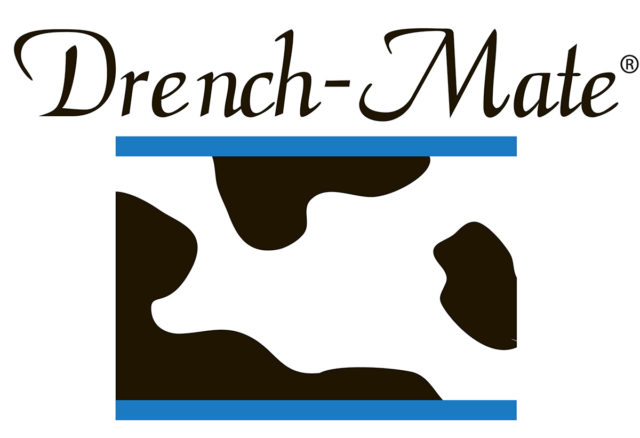Dairy farmers and industry partners work together to coordinate educational tours to give leaders a forum to share successes and solutions while also showcasing techniques that ensure a safe, affordable and efficient water supply into the future.
See a need:
Preserving water quality, safety and accessibility of our water supply is a top priority for farmers, elected officials, community members, governments and consumers. However, there is much work to be done on the part of the dairy community for the public to believe farmers are responsibly caring for the water and land entrusted to their care.
Brian Brown, Sunburst Dairy Farm near Belleville, Wisconsin, and farm host of the June 2018 Water Tour, said, “People don’t realize the time and effort farmers dedicate to conservation. They also don’t understand how much it means to us to take care of the land we’re entrusted with and our efforts to leave it better than we found it.”

There are many lessons to be learned from non-dairy stakeholders who depend on clean water and must responsibly manage that water after the production process. Through collaboration and discussion, it’s possible to see more clearly how water quality is affected across communities. Eric Cooley, co-director of UW Discovery Farms, said, “Dialogue is invaluable to establish connections between individuals and organizations for future collaboration. Educational presentations showcase regional water quality challenges and current initiatives being implemented to improve water quality.”
Your Dairy Foundation raises funds nationwide and awards grants and sponsorships for educational programs and initiatives that benefit U.S. dairy. PDPF is committed to uniting the dairy community on issues of common concern to achieve its vision of a professional, proactive and prepared industry. Through meaningful donations, dairy farmers and industry partners invest in the future of the dairy community.
Fill a need:
University of Wisconsin Discovery Farms and Professional Dairy Producers (PDPW) have teamed up to showcase water quality innovations and practices that affect people, animals and the environment. Through Dairy Foundation funding, farmers and stakeholders tour businesses, learn about farmer-led watershed initiatives and discuss water quality issues.
Tours provide local elected officials, dairy producers and community leaders the opportunity to see the latest in water management practices. Brown said of the tour his family hosted, “I was surprised by the people who showed up, how they participated and how much farmers, crop consultants, agency partners and consumers want to know about water. This was a dream come true, to work on finding solutions with others in the community who realize we’re all in this together; we all have something to learn.”
Water tours reach multiple stakeholders through education aimed at highlighting best management on-farm practices and sharing ideas and solutions that work. This multiapproach initiative focuses on educating farmers, the regulatory community and non-agricultural partners. Cooley says, “Water tours create synergies of education, technology and funding to collectively address regional water quality issues.” UW Discovery Farms works closely with the farming community and are aware of innovative, effective and best management practices to protect our land, water and other natural resources.
Through partnerships with Discovery Farms and by building relationships with leaders within multiple municipalities through American Water Works Association, good role models are found for sharing and touring. The American Water Works Association is an international research and education association focused on improving water quality and supply.
They are good partners to dairy because they have a large membership of municipalities, industry, research and other professionals who provide research, education and technical expertise to address water quality and quantity issues. Field demonstrations and on-farm discussions help educate and showcase some of the great techniques best managers are successfully using.
Brown appreciated the opportunity to talk to and show people what systems they implement on their dairy, including successes and failures, as well as reasons for strip cropping, stream bank restoration, no-till alfalfa, and corn and cover crops. “Our dairy jumped in with both feet, hosted a field day and worked with other farmers in the farmer-led watershed project to share ideas and find solutions.”
Regarding the positive outcomes of the tours, Cooley said, “They provide a networking platform for farmers, industry, municipalities and other local leaders and citizens to discuss water quality issues. Once these contacts are established, it opens up opportunities for continued dialogue and potential nutrient trading or adaptive management programs between municipalities and industry with local farmers.”
“Many of the technologies to mitigate water quality impairments are applicable across all sectors of industry, agriculture and municipal treatment facilities,” Cooley continued. “As these technologies are further developed, information sharing can enhance current mitigation technique efficiency and effectiveness.” ![]()
PHOTOS: Dairy farmers and industry partners work together to coordinate educational tours to give leaders a forum to share successes and solutions while also showcasing techniques that ensure a safe, affordable and efficient water supply into the future. Courtesy photos.
The following update is provided by the Professional Dairy Producers Foundation, which raises funds nationwide and awards grants and sponsorships for educational programs and initiatives that benefit the U.S. dairy community. PDPF is committed to uniting the dairy community on issues of common concern to achieve its vision of a professional, proactive and prepared dairy community.








